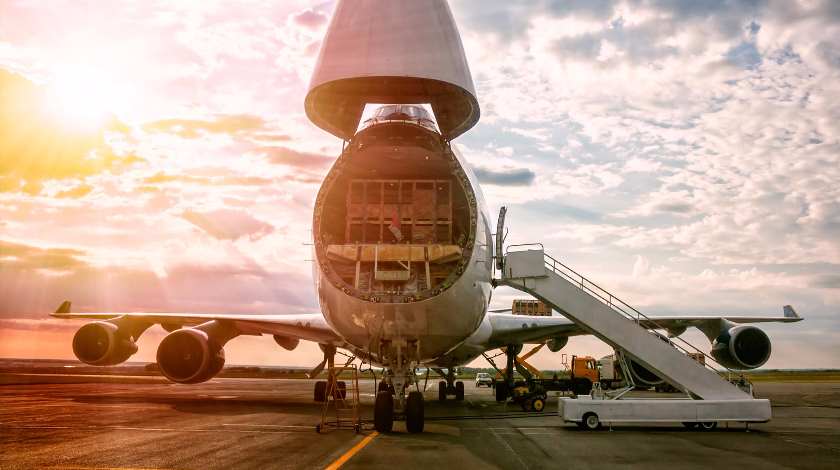Photo: shutterstock
Reading Time: 2 minutesWhile more and more countries are closing their borders in an attempt to reduce the spread of the coronavirus pandemic, air cargo must not be forgot and its activity must not be restrained by governments, IATA says.
Even in light of massive reductions in passenger flights, which currently reach up to 75%, air cargo has remained a vitally important bridge providing people with key supplies, including medicines and medical equipment.
“Over 185,000 passenger flights have been cancelled since the end of January in response to government travel restrictions,” said Alexandre de Juniac, IATA’s Director General and CEO. “With this, vital cargo capacity has disappeared when it is most urgently needed in the fight against COVID-19. The world’s fleet of freighter aircraft has been mobilised to make up this capacity shortfall.”
In aviation, the freight market has been left the one to save lives, fight against further spread of the virus and make economies moving. In addition, cargo flights are securing with products people making purchases online while being in quarantine, while many shops are closed and people are distanced from social and cultural life.
Governmental policies aimed at containing the coronavirus pademic are critical measures, nevertheless, IATA urges authorities to “ensure that vital supply lines remain open, efficient and effective”.
“That includes exempting crew—who do not interact with the public—from quarantine, granting temporary traffic rights where needed, keep air cargo excluded from travel restrictions….and other practical measures to keep cargo moving at this critical time”, Alexandre de Juniac highlighted at the IATA Media Briefing on COVID-19.
Airlines Operate Passenger Aircraft to Supply Cargo
Passenger airlines go through extremely dark times. Nevertheless, they are looking for any of the ways to stay afloat and stay useful for the public.
Some airlines are flexibly responding to the market by utilising their passenger planes with to carry cargo on the routes that were suspended for travellers.
Among these airlines are Korean Air, Scoot, Cathay Pacific, Delta and even more.
Scoot, a low-coster owned by Singapore Airlines, has used its passenger Boeing 787 aircraft to provide goods to China on the routes banned for passengers. Cathay Pacific was also the airline that even having a separate cargo fleet, put into action some of its passenger planes to reach mainland China.
For instance, reacting to customers’ requests, Delta Cargo is also “launching charter operations to provide the safe and reliable transportation of customers’ goods around the globe”. Cargo services under this program could be provided from 13 US airports to 70 other airports of destination worldwide.
If the crisis will develop further, cargo airlines will need even more help from its colleagues offering only passenger services.
“Air cargo carriers are working closely with governments and health organizations around the world to safeguard public health while also keeping the global economy moving”, IATA said.

